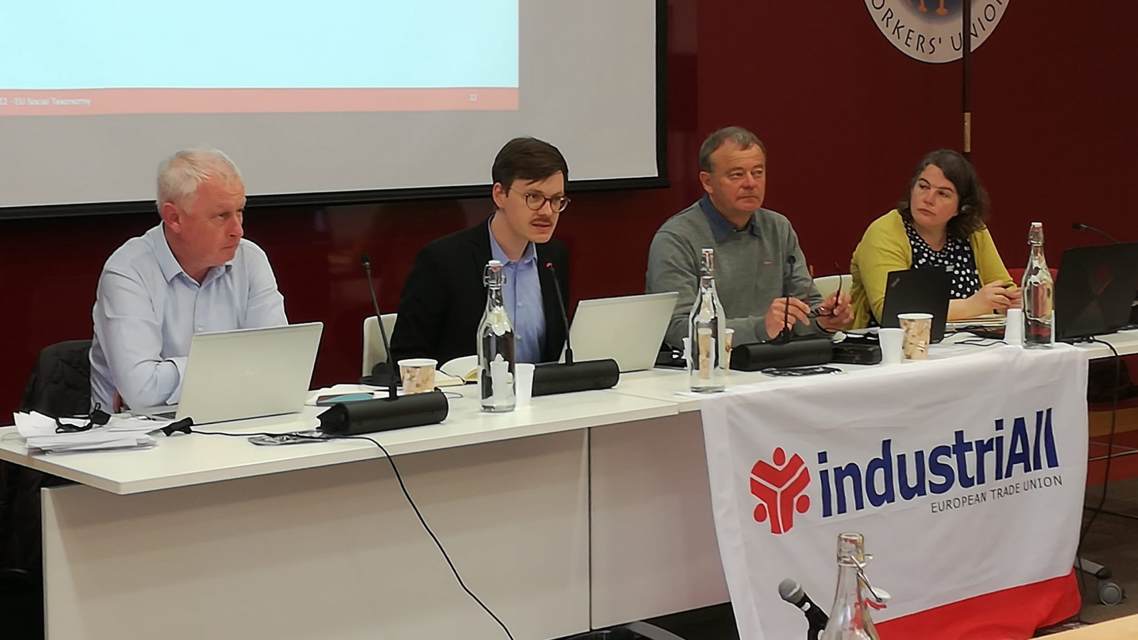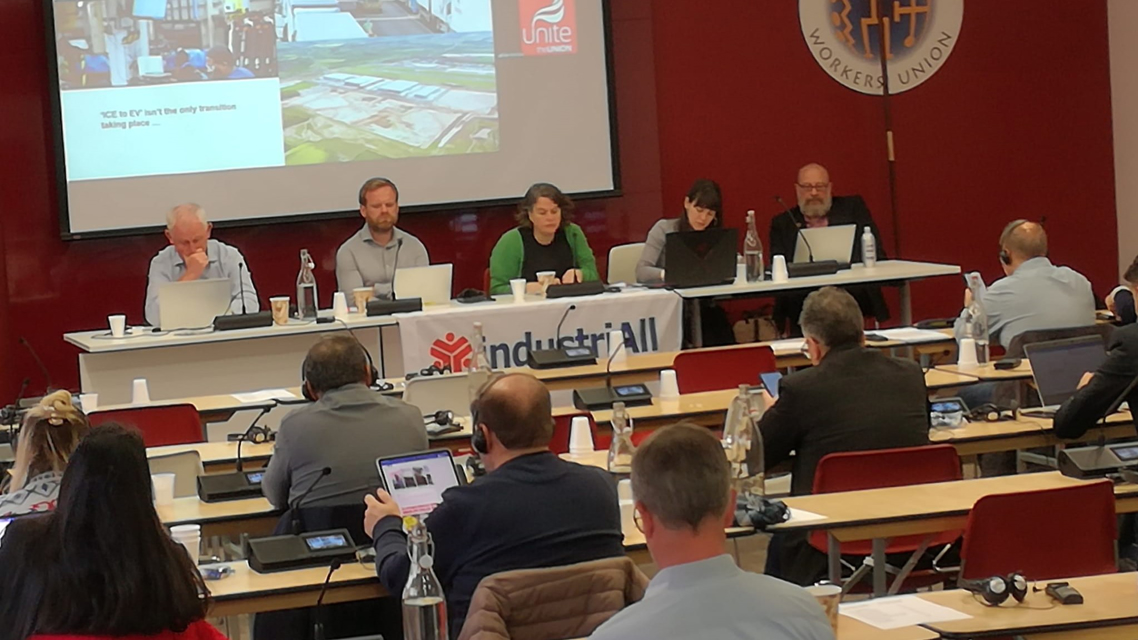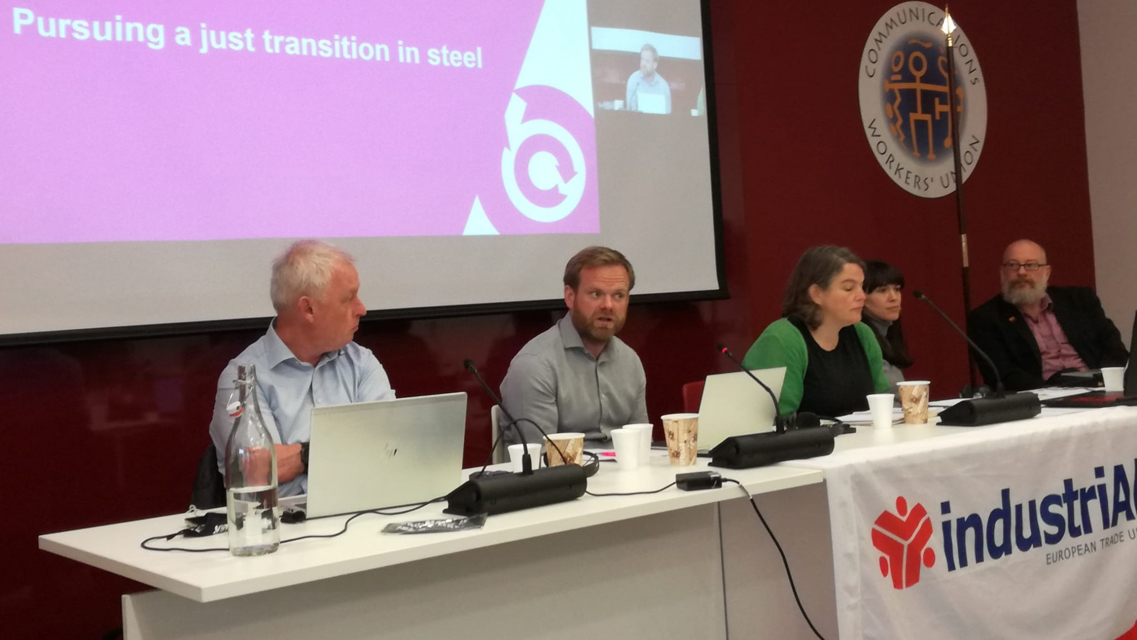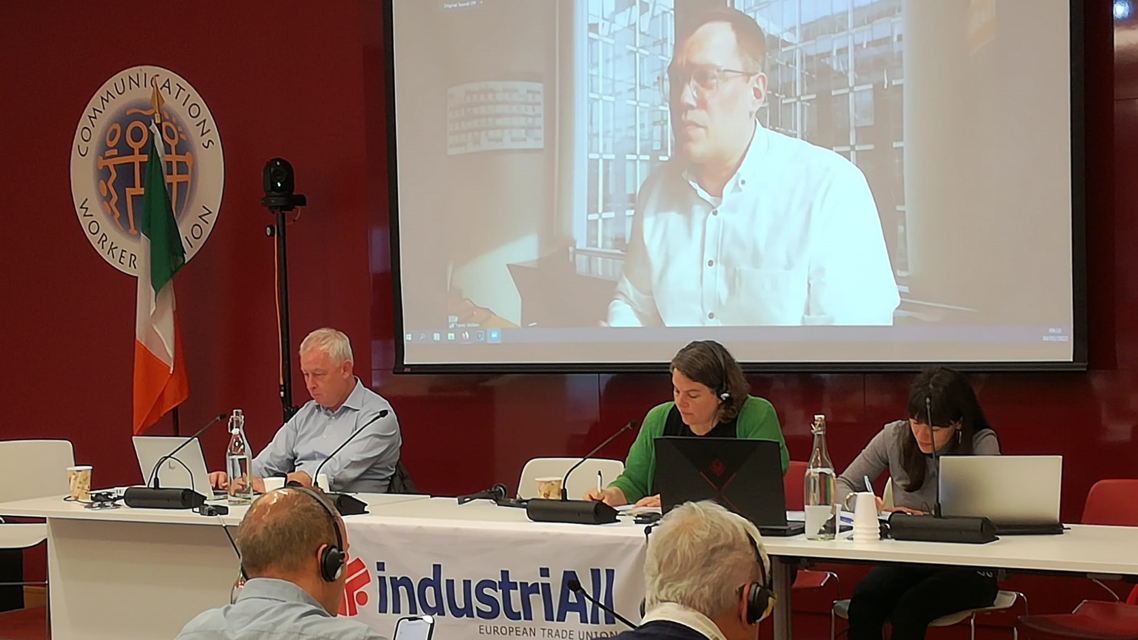Just Transition must not be a debating theme for the congress floor, but one that has real impact on the shop floor.
IndustriAll Europe affiliates from all over Europe met in Dublin for a final ‘mega-roundtable’* to discuss the challenges of ensuring a Just Transition for workers in the race to reach the EU’s climate-neutrality targets.
Participants heard that Ireland has committed to radical decarbonisation, with major implications for energy production. The British government, like the EU, has committed to some of the world’s most ambitious climate targets, which is accelerating decarbonisation. Like the EU, Just Transition policies are piecemeal.
Scotland leads on good examples. It has set up a Just Transition Commission (JTC) in response to pressure from trade unions and environmental groups. A JTC trade union representative highlighted the positives and negatives at the Dublin event. On the positive side, trade unions are included in the JTC, with three seats for workers’ representatives. When monitoring sectoral Just Transition roadmaps in Scotland, the JTC will focus on fair work, underpinned by social dialogue. Furthermore, the JTC will ensure that no public funding goes to companies that do not respect collective bargaining. Skills guarantees for workers is another positive element of the Scottish Just Transition planning.
On the negative side, trade unions are concerned that the JTC might not deliver in practice and is only good on paper. The coming months will show if the JTC can move beyond rhetoric.
UK affiliates presented examples of the green transformation in the British automotive and steel sectors. Since Brexit, trade unions have been fighting a wave of restructuring in companies that suddenly left Great Britain. On top of that, companies that have mainly been following cost-cutting policies without any regard for their workers are now seriously tested by the green and digital transitions. Regrettably, the British government seems to have no strategy in place to tackle industrial transformation. There is no coordination of funding, no broader industrial strategy, and no national social dialogue to tackle the issue.
In the automotive sector, multinational companies, like Stellantis, have been extremely aggressive in their cost-cutting strategy while transitioning towards electrification. Trade unions have mobilised massively to counter the predatory attitude of employers who have tried to cut pay and lower working conditions in order to reach price parity earlier than the competition.
In the British steel sector, British Steel and Tata Steel are together responsible for 95% of carbon emissions. Trade unions are frustrated that the British government has not put in place an overarching strategy to decarbonise the sector and to ensure a Just Transition for the companies’ workers and those of their suppliers. Decarbonising steel requires serious investments in technologies and the necessary training for workers. Unions will continue to fight for a sustainable future for steel workers and steel communities to avoid the creation of new industrial deserts.
Judith Kirton-Darling, Deputy General Secretary, said:
“We have seen big discrepancies among regions and countries during our tour across Europe. We fear that the twin transition could make Europe more unequal unless policymakers and employers shoulder their responsibilities. Just Transition is now on everybody’s lips, but we must not forget that this is a concept that is not about maximising profits for shareholders, but about ensuring that nobody is left behind. As our trade union representatives remind us, Just Transition must not be a debating theme for the congress floor, but one that has real impact on the shop floor.”
Isabelle Barthès, Deputy General Secretary, said:
“People will support transition projects if the quality of their employment is ensured. During our European tour, we have seen that some countries are well prepared for a Just Transition through well-functioning social dialogue and collective bargaining. In many others, more needs to be done by policymakers, employers and trade unions to strengthen the structures. IndustriAll Europe will continue to push and work for this objective!”
*The Dublin event on 30 March, was the last in a series of seven regional workshops taking place across Europe until April 2022, as part of industriAll Europe’s Just Transition campaign. Over the past months, regional workshops were held in-person in Prague, Bucharest and Dublin, and online “in” Madrid, Frankfurt and Helsinki.
Contact: Andrea Husen-Bradley (press and communication), Patricia Velicu (policy officer)



